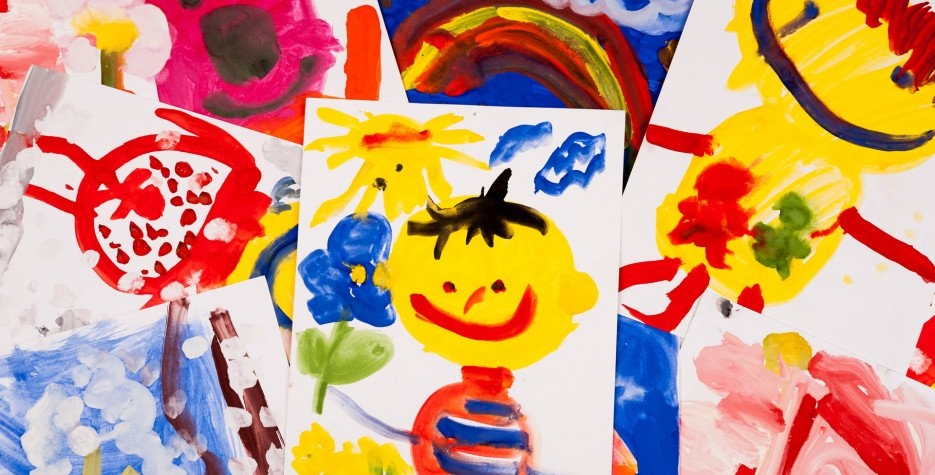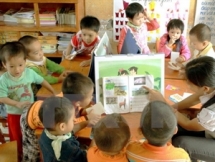History of the International Children’s Day
 |
| (Photo: Office Holidays) |
History of International Children's Day
The origin of this holiday goes back to 1925 when representatives from different countries met in Geneva, Switzerland to convene the first "World Conference for the Wellbeing of Children".
After the conference, some governments around the world designated a day as Children's Day to highlight children's issues. There was no specific date recommended, so countries used whatever date was most relevant to their culture.
The date of June 1st is used by many ex-Soviet countries as 'The International Day for Protection of Children' was established on 1 June 1950 following the Women's International Democratic Federation's congress in Moscow that took place in 1949.
With the creation of the International Children's Day, UN member states recognized children, regardless of race, colour, sex, religion and national or social origin, the right to affection, love, understanding, adequate food, medical care, free education, protection against all forms of exploitation and growing in a climate of universal peace and brotherhood.
Many countries have established a Children's Day but this is commonly not observed as a public holiday. For instance, some countries observe Children's' Day on November 20th as Universal Children’s Day.
International Children's Day is usually mistaken with the Universal Children’s Day
However, the Universal Children’s Day was created to change the way children are viewed and treated by society and to improve children’s welfare. First established by a United Nations’ Resolution in 1954, Universal Children’s Day is a day to advocate for and champion the rights of children. Children’s rights are not special rights or different rights. They are fundamental human rights. A child is a human being, entitled to be treated as one and should be celebrated as such.
 |
| (Photo: UNICEF) |
Mankind Owes to Children the Best That It Has to Give
In 1925, the World Conference for the Well-being of Children declared June 1 as the day to draw the world’s attention to issues affecting children. The represented countries recognized that "mankind owes to the Child the best that it has to give." As a result the Conference adopted the Geneva Declaration of the Rights of the Child.
- The child must be given the means requisite for its normal development, both materially and spiritually;
- The child that is hungry must be fed; the child that is sick must be nursed; the child that is backward must be helped; the delinquent child must be reclaimed; and the orphan and the waif must be sheltered and succored;
- The child must be the first to receive relief in times of distress;
- The child must be put in a position to earn a livelihood, and must be protected against every form of exploitation;
- The child must be brought up in the consciousness that its talents must be devoted to the service of fellow men.
In 1959, the United Nations adopted the Declaration of the Rights of the Child, which was based on the structure and contents of the Geneva Declaration and reaffirmed that "mankind owes to the child the best it has to give." This new declaration set forth 10 principles to safeguard children before as well as after birth and laid the groundwork for the adoption of the Convention of the Rights of the Child in 1989, the most rapidly and widely ratified international human rights treaty in history.
 | Bargain holidays bolster demands for domestic tourism in Vietnam Some experts have shared their views to the Straits Times that Vietnam has not completely exploit its potential in domestic tourism and bargain holidays can ... |
 | Marching towards national salvation – A valuable and factual documentary (Part 3) May 20 marks National Day of Remembrance of Cambodia (Khmer: ទិវាជាតិនៃការចងចាំ) to remember the tragic memory of the Khmer people in the document entitled «Marching towards National Salvation. ... |
 | Memorial Day – a day to remember and honor US military men and women As one of the most important holidays for US citizens, Memorial Day is held on the final Monday of the month each and every year. |
In topics
 Viet's Home
Viet's Home
International Children's Day 2021: 15 Best gift ideas for your kids
Recommended
 World
World
Pakistan NCRC report explores emerging child rights issues
 World
World
"India has right to defend herself against terror," says German Foreign Minister, endorses Op Sindoor
 World
World
‘We stand with India’: Japan, UAE back New Delhi over its global outreach against terror
 World
World
'Action Was Entirely Justifiable': Former US NSA John Bolton Backs India's Right After Pahalgam Attack
Popular article
 World
World
US, China Conclude Trade Talks with Positive Outcome
 World
World
Nifty, Sensex jumped more than 2% in opening as India-Pakistan tensions ease
 World
World
Easing of US-China Tariffs: Markets React Positively, Experts Remain Cautious
 World
World










![[Photos] Families Explore Traditional Cultural Values on International Children's Day](https://vietnamtimes.org.vn/stores/news_dataimages/2023/052023/29/09/2599a588c2d69e32295f0bb69fb33314.jpg?rt=20230529095518)


